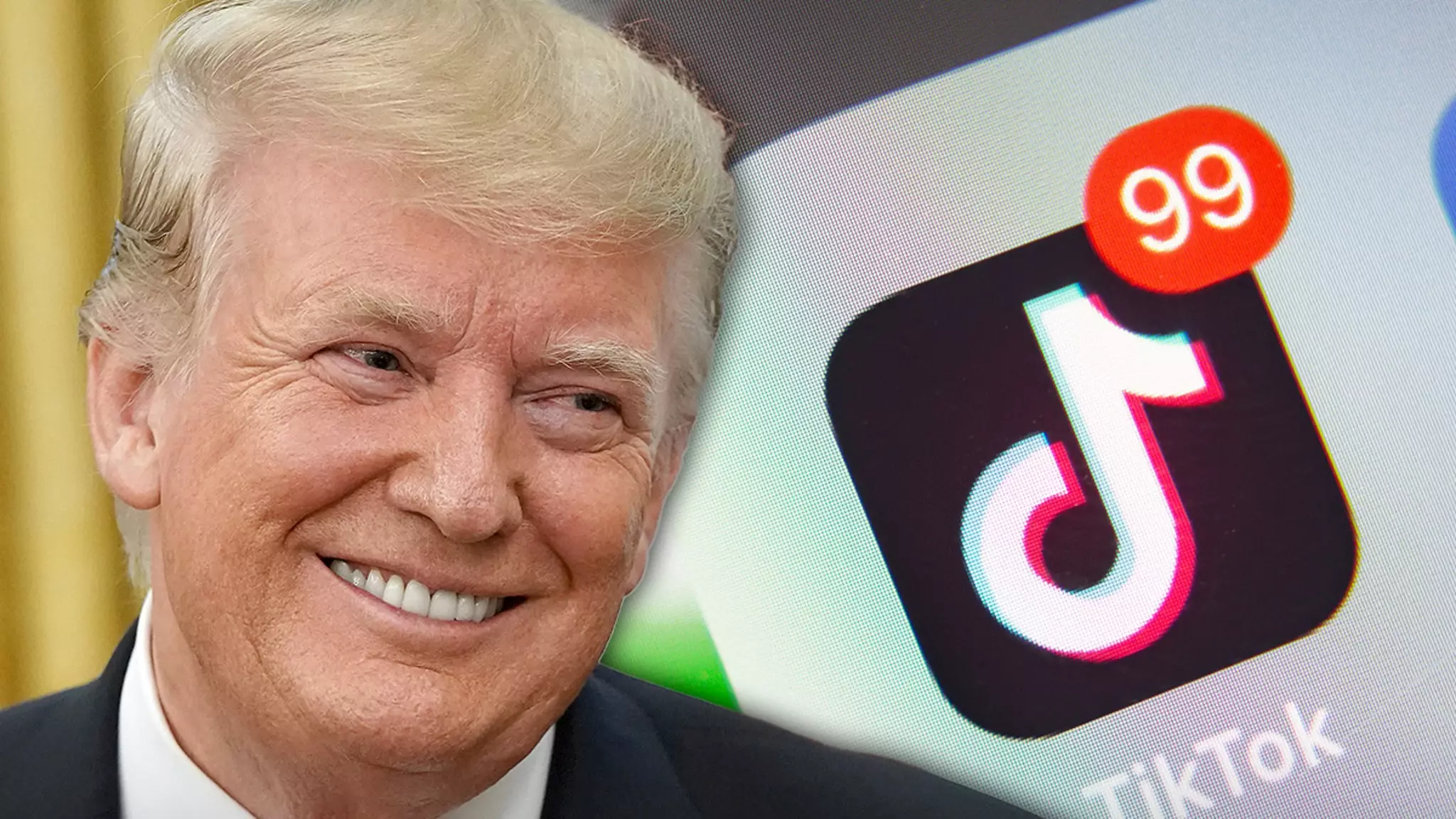As the digital landscape continually evolves, the topic of TikTok’s future in the United States has become a focal point of immense political and social interest. Under the looming specter of a potential ban, Donald Trump’s administration is faced with the challenge of navigating the app’s controversial ties to China while also considering the livelihoods of countless influencers who depend on it. As Trump approaches his ascension to the presidency, the implications of his decisions regarding TikTok weigh heavily on both business and entertainment sectors.
During a recent interview, Trump indicated a willingness to explore a potential extension for TikTok, potentially buying time for influencers like GloZell Green. These content creators have voiced concerns over the ramifications of a ban on their income and personal brands. Understanding the significant financial and emotional investment creators have in platforms like TikTok puts the stakes in sharper focus; influencers are not merely participants in a fleeting digital trend but are integral to modern media narratives and marketing strategies. Trump’s comments suggest a sympathetic ear toward these artists, but it raises questions: Can he genuinely help, or is this merely political posturing?
However, the matter isn’t as straightforward as it appears. Trump lacks unilateral power to halt the ban without fulfilling several legal requirements, including the need for ByteDance—TikTok’s parent company—to make demonstrable progress toward divestiture. This intricate web of legalities complicates the picture. The administration requires binding legal agreements in place for any extension to ensure that a proper handover to an American company is in motion. This necessitates tangible negotiations that may not be feasible in a short time frame, contradicting the urgency expressed by many TikTok proponents.
The potential ban has sparked a backlash from various quarters, including notable figures in the entertainment industry who have publicly downplayed its likelihood. Jason Derulo and other celebrities have argued that TikTok’s cultural significance and economic potential are too substantial to disregard. Their comments reflect a broader sentiment that TikTok is not merely an app but a cultural phenomenon. It serves as a platform for creativity, community, and even activism, elements that are fostering a sense of belonging in a disjointed world.
The fate of TikTok hangs in a precarious balance, tethered to legal, political, and cultural threads. As Trump navigates his new role, the decisions made within these initial days will resonate deeply within influencer circles and beyond. Will the administration manage to find a path forward that honors both national security concerns and the vibrant community of TikTok users? The next moves will undoubtedly shape the future of digital media and influencer culture for years to come, making it imperative for stakeholders to remain vigilant as events unfold. The time is ripe for both caution and optimism in this evolving social media saga.

